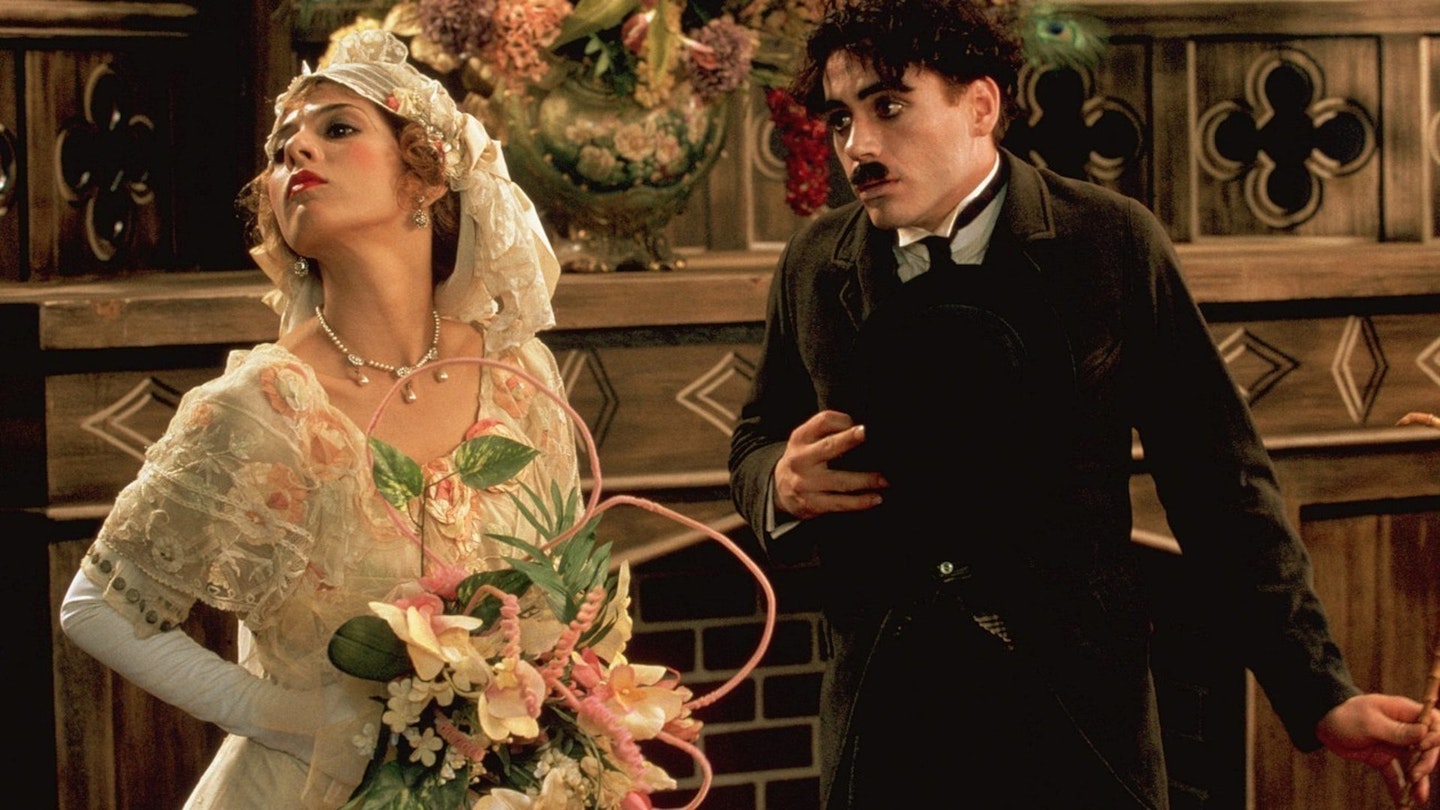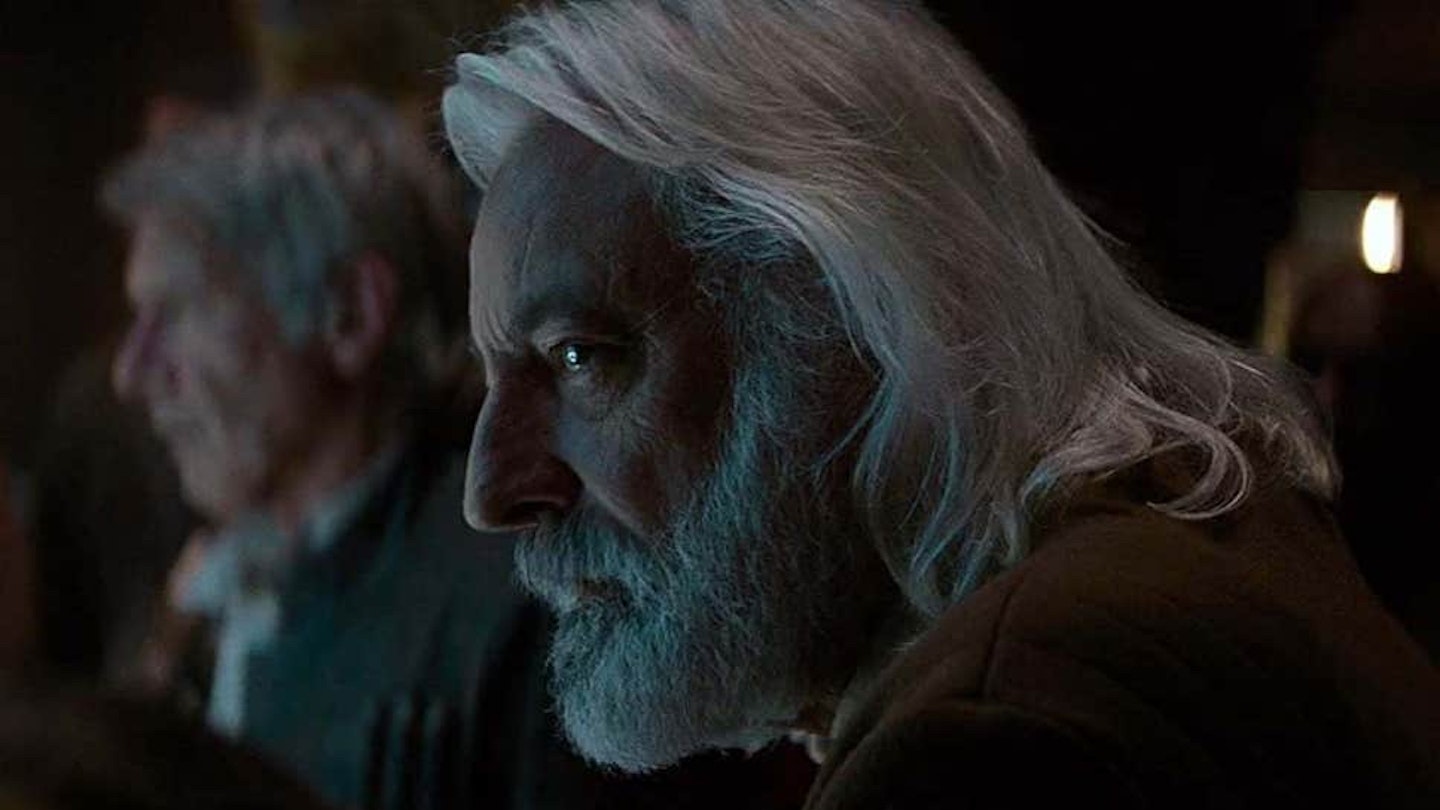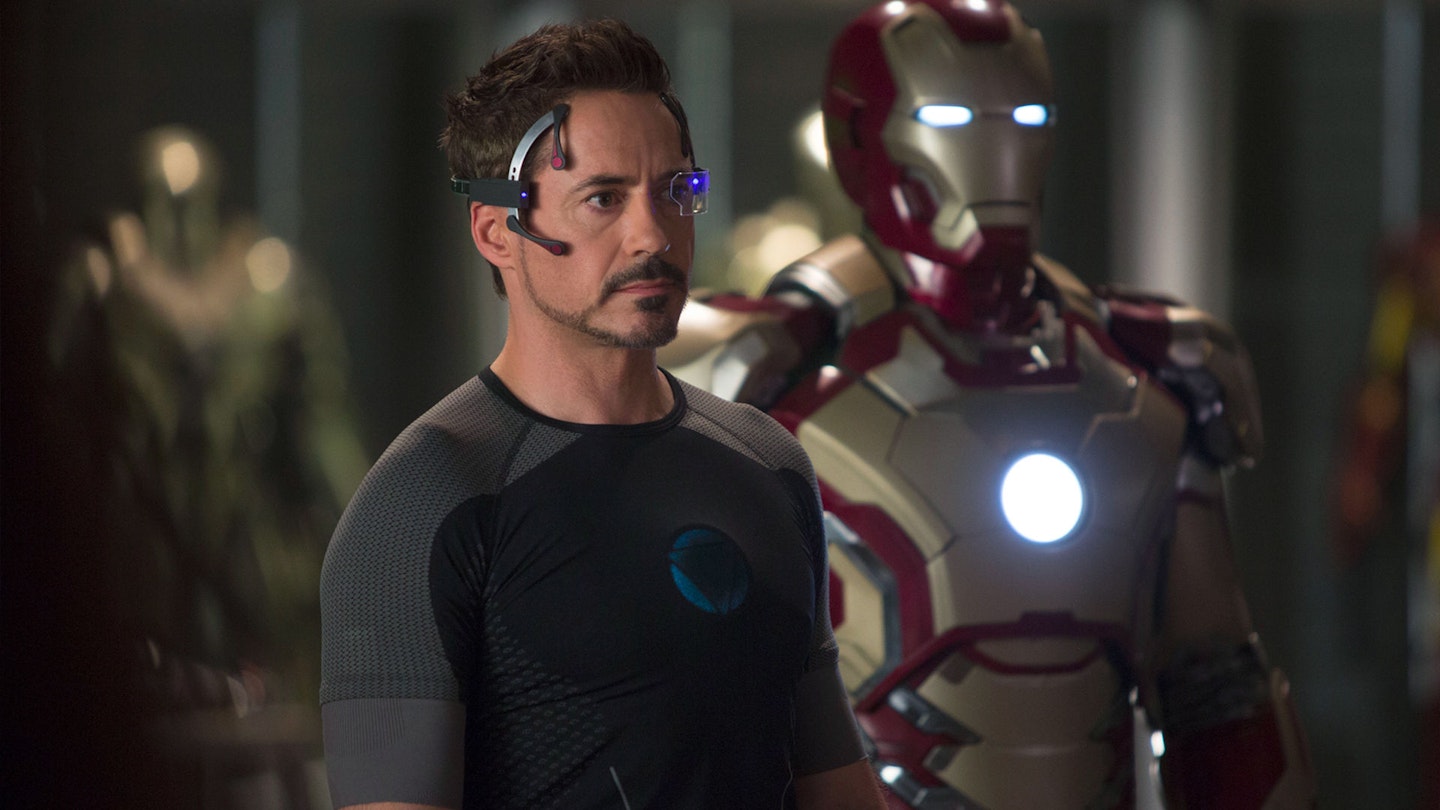Sir Richard Attenborough's long-in-the-making account of the life of Sir Charles Chaplin is a film you desperately want to like, but it emerges as a big, shiny, old-fashioned biopic that ultimately fails either to illuminate the genius of its subject or to excite as a story. It is, in fact, a rather uneven and unfocused plod through a long, eventful life, from tousle-haired tyke singing his little heart out for the pennies of a cockney crowd to frail 83-year-old weeping on stage at the 1972 Oscar ceremony.
En route Robert Downey Jnr.'s impersonation of Chaplin is always impressive - physically he's superb and the voice is not bad - as a horde of actors known and unknown flit through. Geraldine Chaplin plays her own sad, mad grandmother, Charlie's mother; Dan Aykroyd has fun as Keystone king Mack Sennett; and Paul Rhys is good as Charlie's brother Sydney. Many an expensively dressed cipher is variously announced as Stanley (Laurel), Edna Purviance, William Randolph Hearst or J. Edgar Hoover, though they are seldom given dialogue or traits to distinguish their significance in Chaplin's professional or private life.
An exception is Kevin Kline, obvious and effective casting for swashbuckling Douglas Fairbanks, whose exuberance, dash and sad decline briefly enliven an otherwise dull picture of Hollywood. As a somewhat clumsy structural device, Anthony Hopkins is little seen but oft heard as a fictitious book editor, prodding the aged Chaplin to elaborate on sections of his 1964 autobiography. Along with captions of the Seven Years Later variety, he exists to bridge the years with unnatural remarks like, "So, Charlie, at that time you were married to Lita Grey, your second wife, who bore you two sons, Sydney and Charlie Jr., within 13 months," while a shot of Charlie's notorious Lolita clutching two infants gives way to Diane Lane's approximation of the vivacious beauty Paulette Goddard.
There are some delightful and striking scenes here: Charlie and Sydney in flight from the police in legally disputed possession of the negatives of The Kid, done in the style of a Keystone Kops comedy; Charlie in the dark, watching himself, or preparing for The Great Dictator by railing before footage of Adolf Hitler, "I know you, you bastard!" For all the love and money that went into Chaplin, one cannot fail to note that the big laughs and choicest bits come with the excerpts of the real Chaplin at his best in The Kid, City Lights, Modern Times and others, inescapably suggesting that the only thing one really needs to know about him is his inimitable work.


